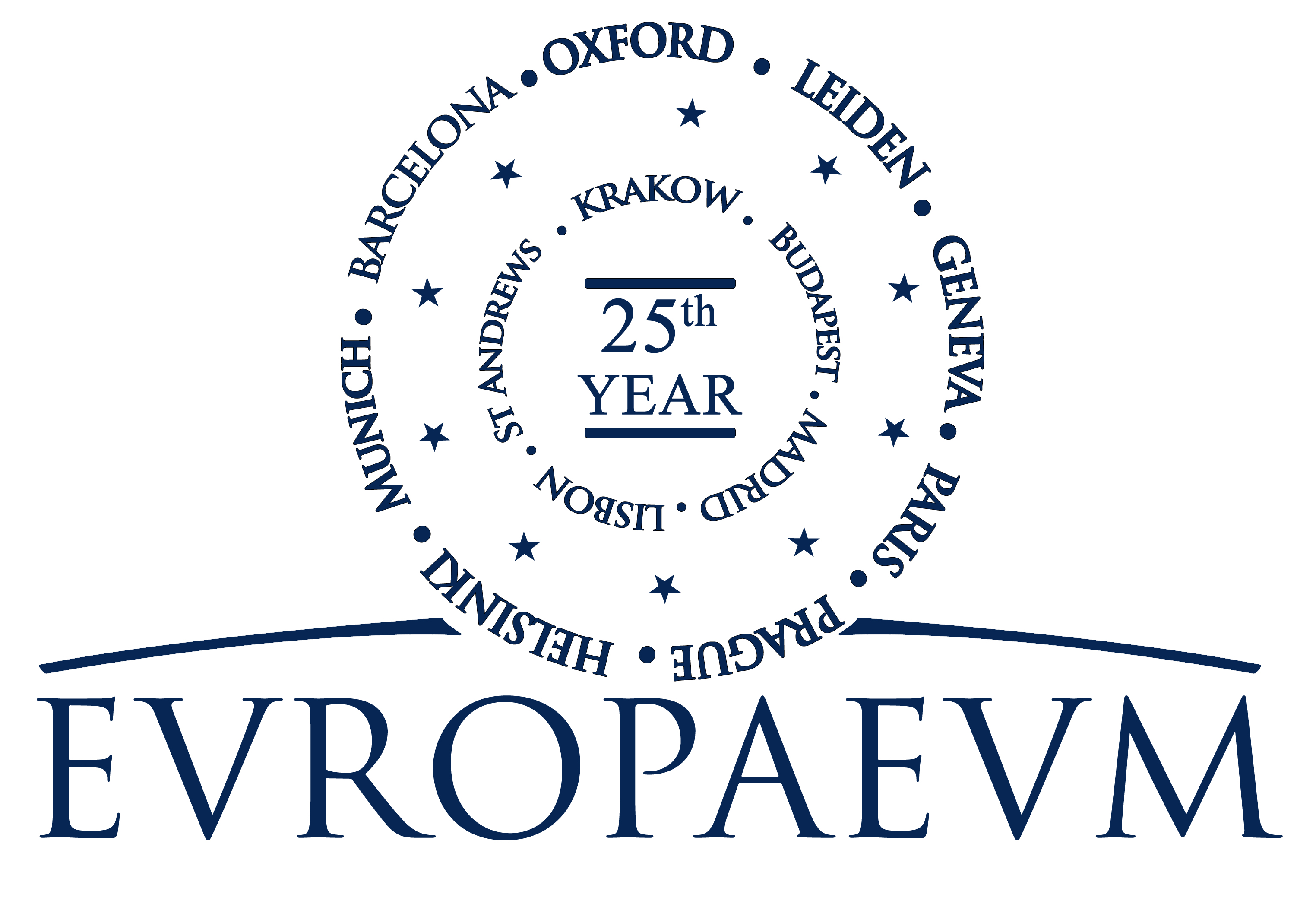The Europaeum, an association of the leading universities in Europe is celebrating its 25th Anniversary. Recognising what we have achieved, we have been assessing where we are and looking ahead.At the time of the Europaeum’s foundation, European idealism was at its height. Today, Europe and European idealism are fragmenting and we observe everywhere the rise of a new populist nationalism and the rejection of empirical, liberal, rational, tolerant thought. In short, the ideas of the Enlightenment that emerged primarily from within Europe and which the Europaeum has sought to foster are in retreat. All members of the Europaeum are strongly of the view that, within this new context, we need the Europaeum more than ever. We need more not less international collaboration, more not less drawing together of the disciplines, more not less awareness of ethical and moral standards, and more not less emphasis on universities engaging with the wider society.To achieve this, all the members of the Europaeum, assisted by generous donations from, amongst others, the Templeton World Charity Foundation, have agreed:To create a new two-year Europaeum Scholars Programme, which will be taken alongside an existing doctoral degree, with an emphasis on multi-disciplinary team work, and a focus on policy. It will be open to any doctoral student at a member university whose work engages with European Studies, broadly understood. The programme will commence at Oxford University in January 2018 and continue at Leiden, Geneva and Prague.To build an alumni network of Europaeum Scholars committed to interacting with the wider community and across nations and shaping the future of Europe.To buttress the Scholars Programme with a substantially enhanced further programme of faculty and student exchanges, aimed especially at engaging the universities with broader society. To widen the membership of the Europaeum and so enable the participation of a broader spread of European faculty and students. We have recently added St Andrews University and we are delighted to announce that the University of Luxembourg will be joining us in 2018.The overall goal is to create a morally aware cadre of young people who have developed the qualities of leadership, learned how to work collaboratively and who are committed to shaping the future of Europe for the better. Investing in the young is what Europe now needs more than ever.Speaking at Balliol College, Oxford, on 29th September, Lord Patten, Chancellor of Oxford, Chair-elect of the Trustees of the Europaeum, said: 'Does anyone doubt that Europe faces huge difficulties? Does anyone doubt that the future of Europe must lie with the young? Does anyone doubt that the UK will be a better and more stimulating place if it continues to be fully contributing to, and engaging with, the intellectual mainstream of Europe rather than retreating into English Nationalism? My predecessor as Chancellor, Roy Jenkins, was proud to have initiated the Europaeum and I am equally proud to be part of these new initiatives.'Dr Andrew Graham, former Master of Balliol, Executive Chair of the Europaeum, and Chair of the Academic Council, commented: 'The structure of the new Europaeum Scholarship Programme is a major innovation designed to meet contemporary challenges. Each of the key features of the new programme – its use of teams, its pulling together of the disciplines, its cross-university, cross-country, and cross-cultural mix, its engagement with the governed as well as the governing, and its concern with moral and ethical considerations – make it ready to contribute from the start to the problems currently facing Europe.'The Europaeum is also delighted to announce the appointment of the former European commissioner for trade and director-general of the WTO, Pascal Lamy, as a Trustee of the Europaeum. Speaking of the new work of the Europaeum, he said: 'My views on the EU and the damage of Brexit are well known. What appeals to me about the Europaeum is that it transcends Brexit by working right across Europe. In particular, the teaching venues of the new programme will offer students radically different perspectives: from the UK leaving the EU, to the Netherlands as a full founder member, to the Czech Republic, a relatively new EU entrant, but not in the Eurozone, to Switzerland which occupies a position all of its own.'
